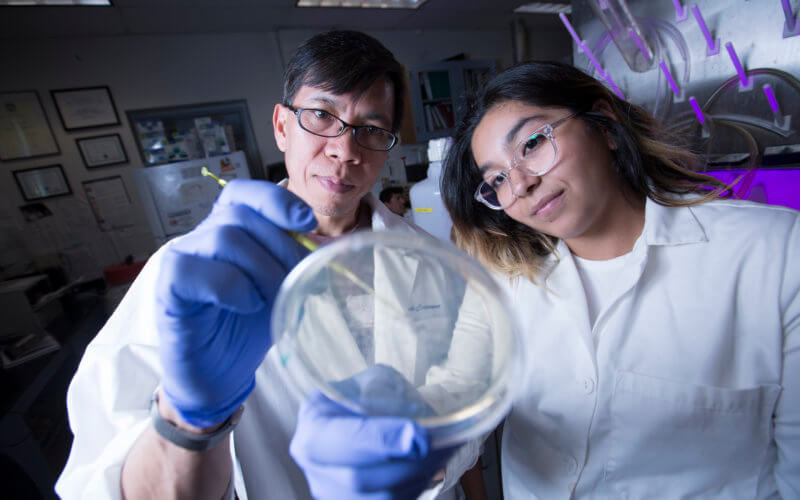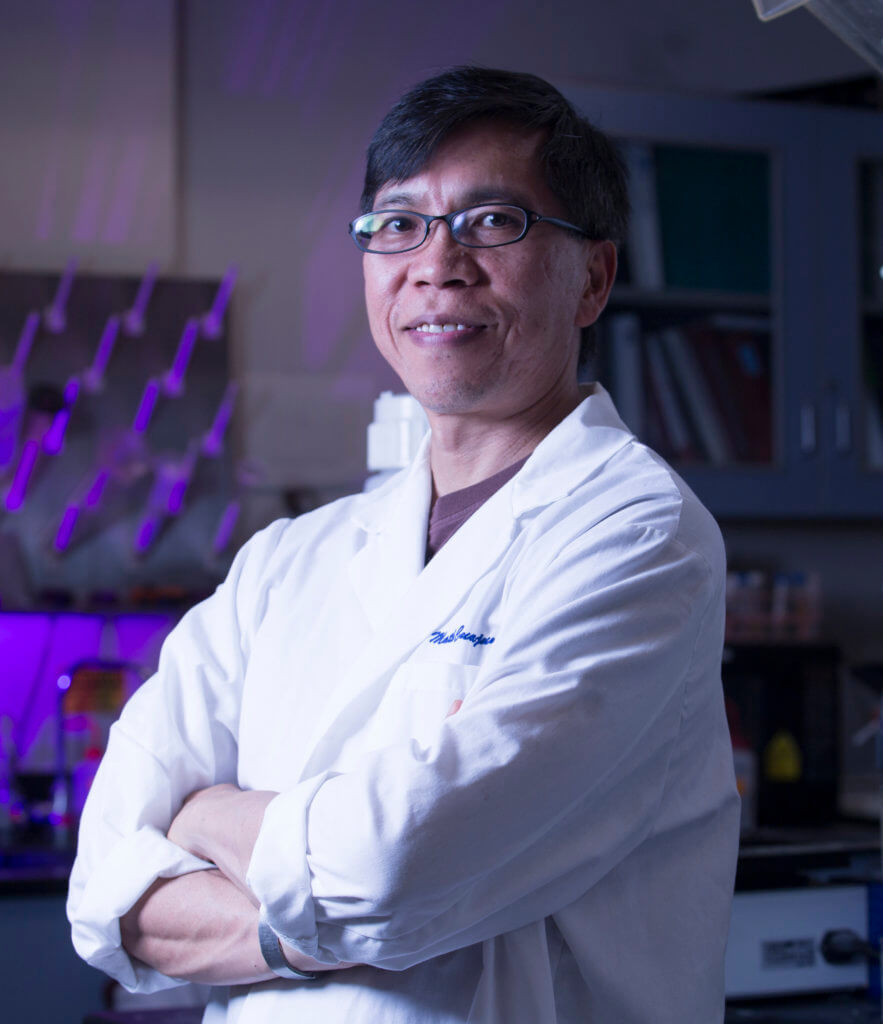
A nearly $1.7 million grant award from the National Institutes of Health is funding a new Cal State Fullerton undergraduate research program to train underrepresented students for graduate school and careers in biomedical science.
The U-RISE Program (Undergraduate Research Training Initiative for Student Enhancement) prepares students to enter a biomedical doctoral or M.D.-Ph.D. program after graduating from CSUF, said Math Cuajungco, professor of biological science and program director.
The five-year grant award is expected to total $1,673,260. The university is receiving $334,652 in first-year funding. Veronica Jimenez, associate professor of biological science, is serving as program coordinator.
According to NIH’s National Institute of General Medical Sciences, the program’s goal is to develop a diverse pool of undergraduates who complete their baccalaureate degrees and transition into biomedical research-focused higher degree programs.
Ten juniors and seniors, known as U-RISE scholars, will be selected for the inaugural class, which begins in June. The program is recruiting STEM majors from biological science, biochemistry, chemistry, mathematics, mechanical engineering and physics, as well as kinesiology and psychology.

To increase diversity in biomedical research and broaden participation of students involved with undergraduate research at CSUF, the program is seeking students from disadvantaged backgrounds, who identify as LGBTQ+, who are neurodiverse (such as individuals with ADHD, autism or dyslexia) or have physical disabilities, Cuajungco said.
U-RISE scholars receive a $14,340 per year stipend, partial tuition and fees waiver, travel allowance to attend conferences, academic advising, faculty and peer mentoring and career networking opportunities.
Scholars participate in the program for two years and gain hands-on research experiences with a faculty mentor to ensure a competitive edge in graduate school. Students’ work culminates with a research presentation and defense of a written thesis.
In the summer, scholars will attend a workshop focusing on responsible research conduct, scientific rigor and reproducibility of their prospective thesis work.
“Overall, the U-RISE Program’s success will be measured by scholar enrollment and retention in doctoral programs at U.S. institutions and by their eventual entry into biomedical research-related careers,” Cuajungco said.
The U-RISE Program replaces the university’s NIH-funded Maximizing Access to Research Careers (MARC) training program, which has prepared students for biomedical research careers since 1996. Amybeth Cohen, professor of biological science, has directed the program since 2004 and Cuajungco is program coordinator. The last class of six MARC scholars is graduating in May.